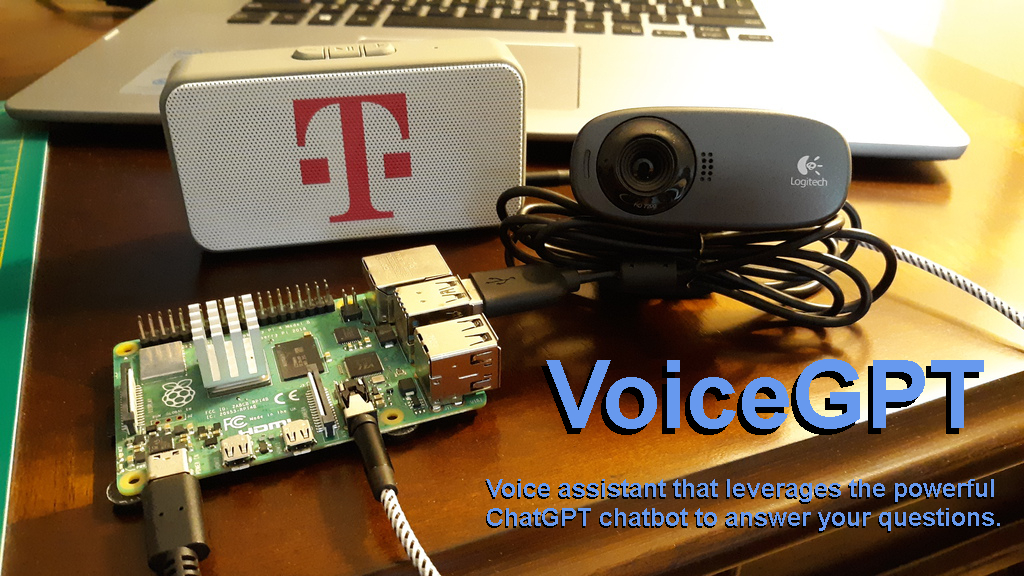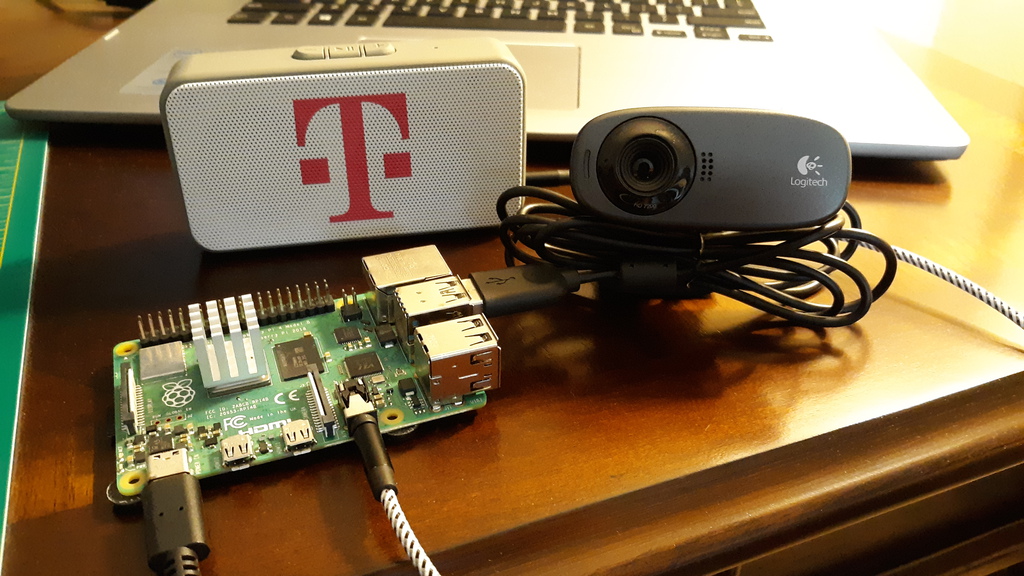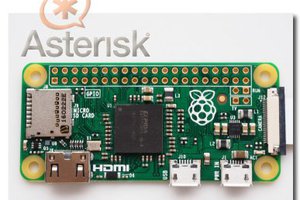VoiceGPT is a voice assistant that leverages the powerful ChatGPT chatbot to answer your questions. You speak the requests, and VoiceGPT responds with realistic, synthesized speech.
How It Works
I chose a Raspberry Pi 4 single board computer to host the project, because it runs Linux and provides a lot of versatility. A custom Python script collects audio of a speaker's voice using a USB microphone. The Google Cloud Speech-to-Text API is then used to convert that audio file into text. The text is then queried against ChatGPT using an unofficial API that returns a text string of ChatGPT's response. That response is then processed by Google Cloud's Text-to-Speech API to turn it into realistic, synthetic speech that the Raspberry Pi can play through a speaker.
The concept of a voice assistant is well established (e.g. Google Home, Amazon Alexa), but this proof of concept shows how a voice assistant can use ChatGPT, which, in my opinion, provides a far better experience than anything currently on the market.
In the future, I may add a keyword spotting algorithm to the project so that it can always run in the background, waiting for a keyword (e.g. "Hey, ChatGPT") to wake up. Before I have the chance to do much of anything else, there will probably be a commerical product including ChatGPT on the backend — then I'll just buy that because it will be smaller and better. :)
Media
Bill of Materials
- 1 x Raspberry Pi 4
- 1 x USB microphone (I use a webcam with a built-in microphone)
- 1 x Speaker
About the Author
 Nick Bild
Nick Bild




 Henry Conklin
Henry Conklin
 TM
TM

 Russell Grokett
Russell Grokett
Voici ChatGPT Français - le compagnon en ligne ultime pour toutes vos aventures en français. Conçu pour révolutionner la façon dont vous communiquez, ce site web de pointe utilise la puissante API d'OpenAI pour ouvrir un monde de possibilités infinies. Avec ChatGPT Français, vous pouvez utiliser les capacités remarquables de ChatGPT sans avoir à vous inscrire ou à utiliser des jetons. Oui, vous avez bien entendu - c'est complètement gratuit et illimité !